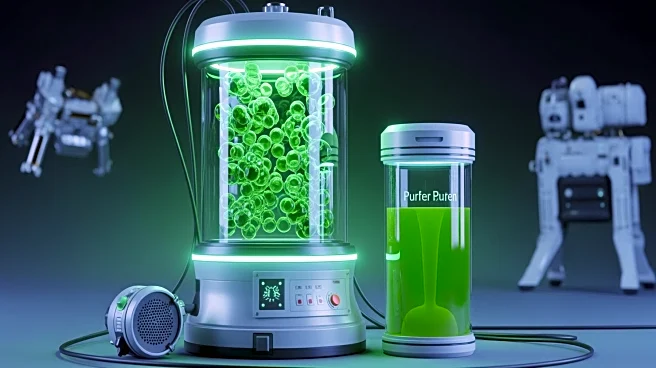What's Happening?
The European Space Agency (ESA) is developing a method to produce food in space using microbes, carbon dioxide, and urine. The project aims to create protein using Solein, a powder made from microbes and electricity, to support long-duration missions
to the Moon and Mars. This approach seeks to overcome the logistical challenges of traditional food supply chains, enabling astronauts to produce food autonomously in space.
Why It's Important?
The development of space food using local resources is crucial for the sustainability of long-term space missions. By reducing dependence on Earth-based resupply, astronauts can achieve greater autonomy and resilience, essential for future exploration of distant planets. This innovation could also have terrestrial applications, offering solutions for food production in resource-scarce environments.
Beyond the Headlines
The use of Solein in space represents a shift towards circular life-support systems, where waste products are repurposed. This aligns with broader sustainability goals in space exploration, potentially leading to more efficient and self-sufficient habitats on other worlds.

















